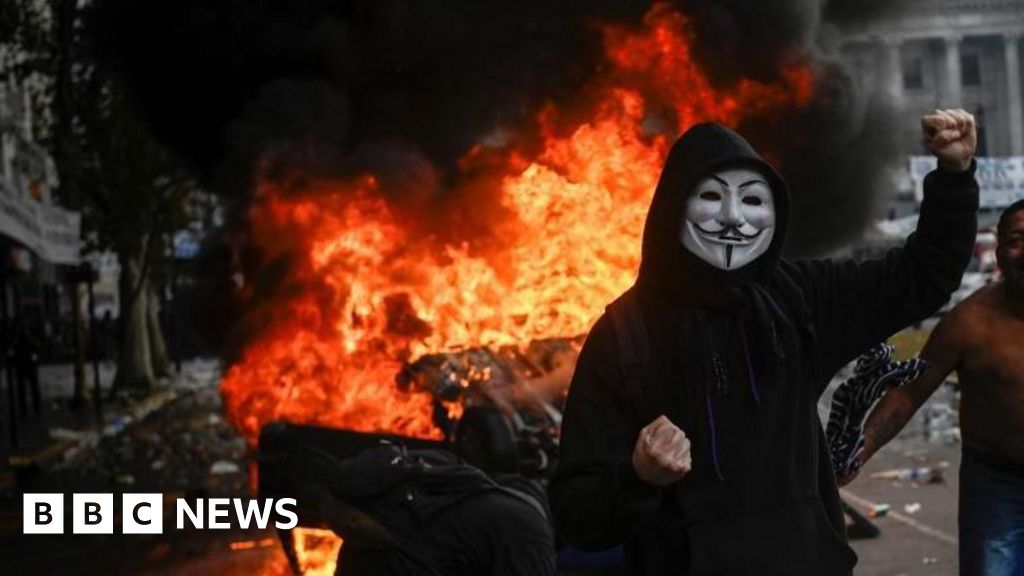
Argentina's Economic Reforms: A Contentious Victory for President Javier Milei
On June 13, 2024, Argentina's Senate narrowly approved a set of economic reform bills proposed by President Javier Milei. The approval came after hours of heated debate and violent protests outside the Senate building.
The reform package includes measures aimed at reviving Argentina's crisis-stricken economy, such as privatizing state entities, providing incentives for foreign investors, and watering down labor rights. These reforms have been met with fierce opposition from leftist political parties and labor unions.
Protests erupted outside the Senate building during the debate. Protesters threw stones and Molotov cocktails at riot police, who responded with tear gas, pepper spray, and water cannons. Several people were reported injured on both sides.
Despite the protests, Vice President Victoria Villarruel cast the deciding vote in favor of the reforms. The approval brings Milei's economic agenda one step closer to implementation.
The Senate's decision marks a significant victory for Milei, who has faced resistance in passing legislation due to his party holding only a small percentage of seats in both houses. However, several articles still require individual Senate approval before they can be fully implemented.
Milei's economic policies have been criticized for deepening the recession and increasing poverty and inflation. The reforms have also sparked concerns about workers' and pensioners' rights.
The protests against Milei's reforms are not limited to Argentina. Observers from around the world, including economists, political analysts, and human rights organizations, have expressed concern over the potential impact of these policies on Argentine society.
Despite the controversy surrounding his economic agenda, Milei remains committed to implementing his reforms. He has said there is no alternative to his so-called 'shock therapy' to remedy Argentina's economic situation.
The approval of the economic reform bills in Argentina comes amid a global trend towards populist and nationalist policies. The success or failure of Milei's reforms could have significant implications for other countries facing similar economic challenges.
Sources: [Reuters] [AFP news agency] [Observers and opposition MPs] [President Milei's office] [Fabio Nunez]

